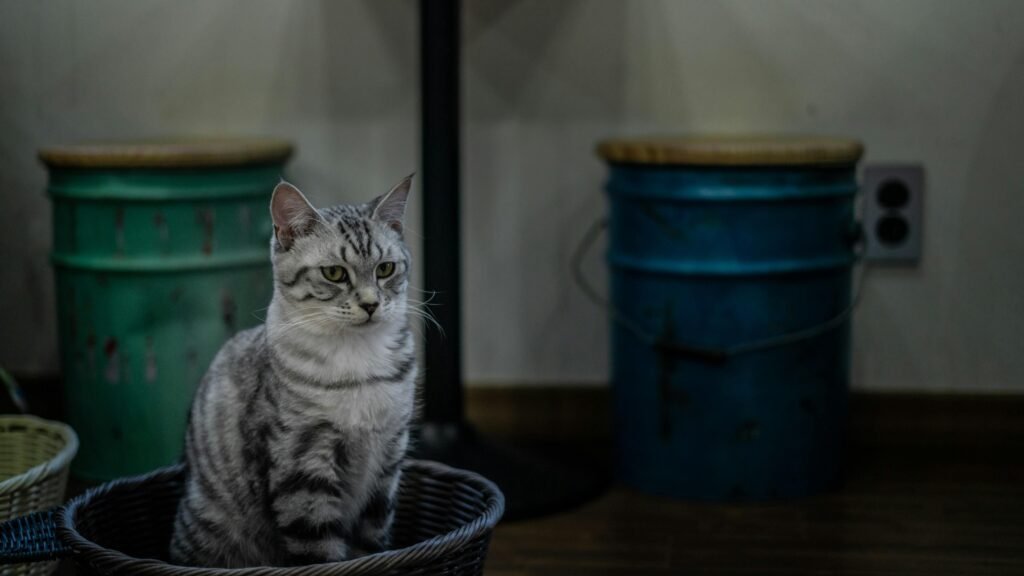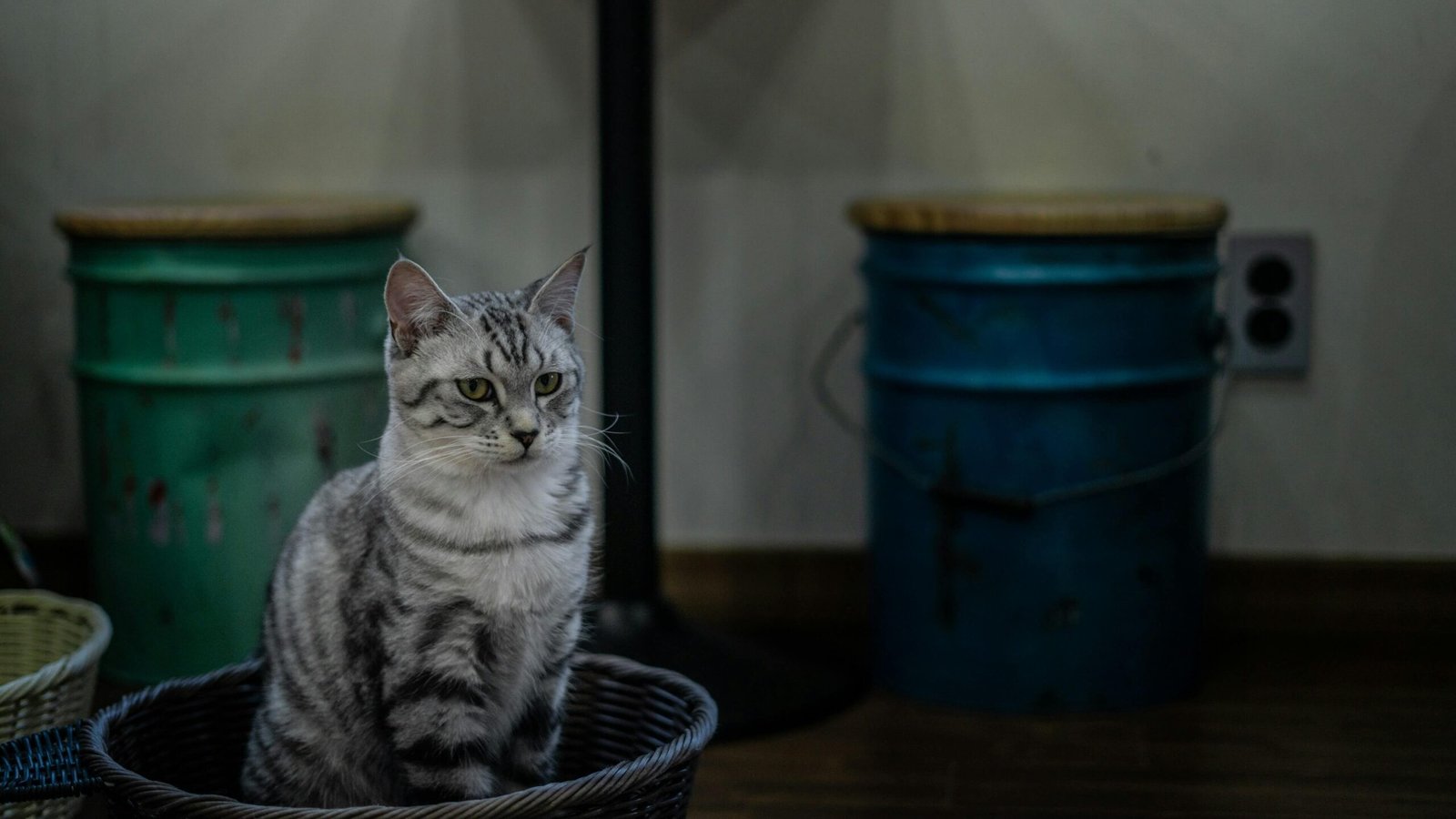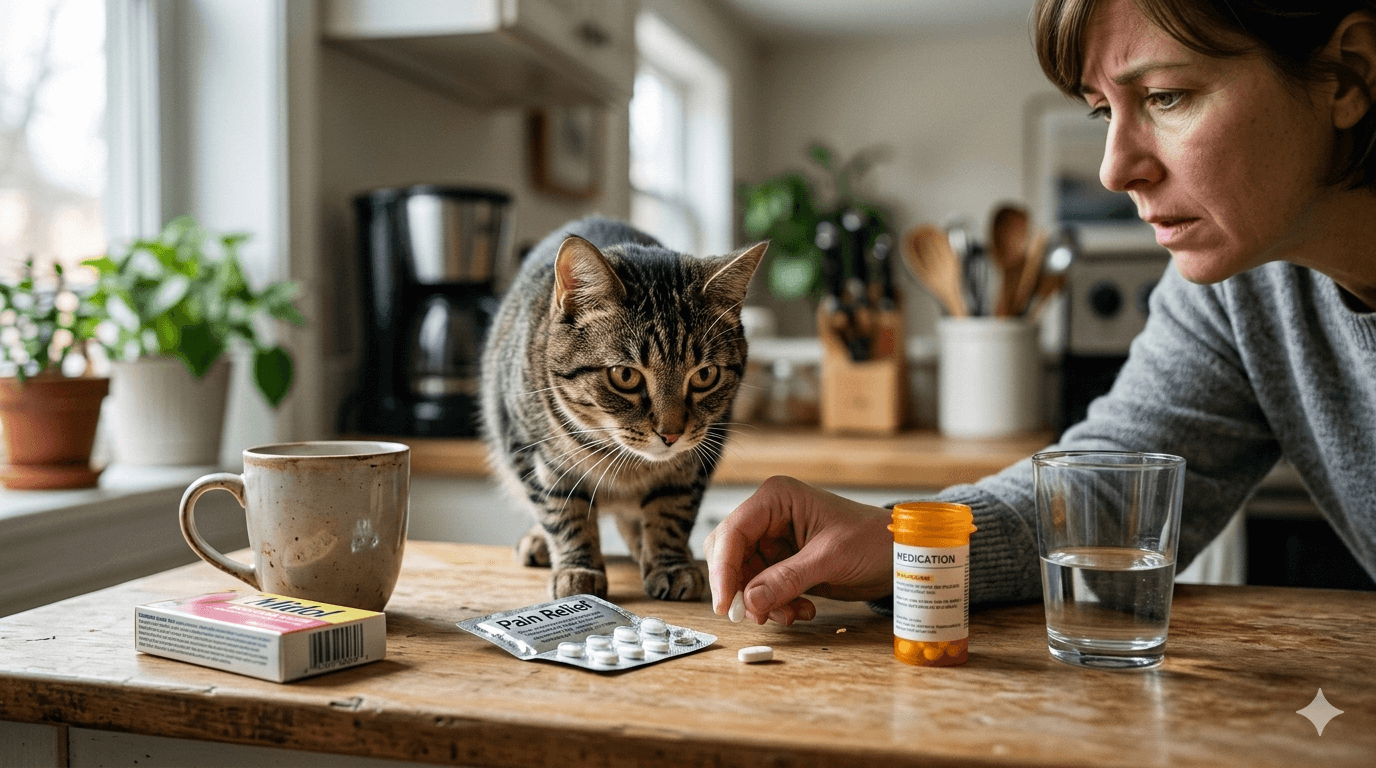The Curious Case of a Cat Sitting in the Litter Box Doing Nothing
Have you ever walked into a room and noticed your feline friend sitting quietly in their litter box, seemingly doing nothing? While this behavior might seem odd or even amusing at first glance, it can hold deeper meaning. Cats are known for their quirky habits, but when they linger in their litter box without any apparent reason, it’s worth paying attention. In this blog post, we’ll explore why cats exhibit this behavior, what it could mean for their health and well-being, and how you can address it if necessary. Whether you’re a seasoned cat owner or new to the world of feline companionship, understanding your cat’s actions will help you build a stronger bond with your furry friend.
Why Do Cats Sit in Their Litter Box?
Cats sitting in their litter boxes may not always indicate an issue, but there are several potential reasons behind this behavior. Here’s a breakdown of some common explanations:
Territorial Behavior
Cats are territorial creatures by nature. The litter box is a space that smells like them, making it a comforting area where they feel safe.Stress or Anxiety
When cats experience stress or anxiety, they often retreat to places that provide comfort—like their litter box.Medical Concerns
Certain medical conditions, such as urinary tract infections or gastrointestinal issues, can cause cats to associate the litter box with relief.Curiosity or Habit
Sometimes, cats simply enjoy being near their litter box out of habit or curiosity about its surroundings.Environmental Changes
Moving furniture, introducing new pets, or other household changes can make a cat seek solace in familiar spaces like the litter box.
Understanding these reasons can help pet owners better interpret their cat’s actions. If your cat frequently sits in the litter box, consider observing their overall behavior and consulting a veterinarian if needed.
Signs That Your Cat Might Be Trying to Communicate Something
If your cat spends extended periods in the litter box, it’s essential to look for additional signs that might indicate underlying problems. These indicators can provide valuable clues about your cat’s emotional or physical state:
Changes in Appetite
A sudden increase or decrease in food consumption could signal discomfort or illness.Excessive Grooming
Over-grooming is often linked to stress or skin irritations, which might explain why your cat seeks refuge in the litter box.Vocalizations
Increased meowing or unusual sounds while in the litter box could indicate pain or distress.Lethargy
If your normally active cat becomes unusually lazy or uninterested in play, it might be time to investigate further.Frequent Visits Without Elimination
Repeated trips to the litter box without producing urine or feces can point to blockages or other serious conditions.
Observing these signs alongside litter box behavior can give you a clearer picture of your cat’s needs. Early detection of potential issues ensures timely intervention and peace of mind for both you and your pet.
Check this guide 👉Banishing the Cat Litter Smell: Best 7 Expert Tips!
Check this guide 👉Why Is My Cat Pooping Outside the Litter Box? Best 7 Tips!

Possible Reasons for Litter Box Sitting | Action Steps for Pet Owners |
|---|---|
Territorial instincts | Provide multiple safe spaces |
Stress or anxiety | Identify and minimize stress triggers |
Medical concerns | Schedule a vet check-up |
Curiosity or habit | Offer alternative cozy spots |
Environmental changes | Maintain consistency in routines |
How to Encourage Healthy Litter Box Habits
Creating a positive environment around the litter box can encourage healthier habits and reduce the likelihood of prolonged sitting. Consider implementing the following strategies:
Keep It Clean
Regularly clean the litter box to ensure it remains inviting and hygienic for your cat.Choose the Right Location
Place the litter box in a quiet, accessible area away from high-traffic zones.Experiment with Litter Types
Some cats prefer specific textures or scents, so try different options to find what works best.Provide Multiple Boxes
For multi-cat households, having one more litter box than the number of cats can prevent territorial disputes.Monitor Behavior Closely
Keep track of how often your cat uses the litter box and note any deviations from normal patterns.
By taking these steps, you can create a supportive environment that promotes proper litter box usage and minimizes unnecessary sitting.
When to Seek Professional Help
While occasional litter box sitting isn’t necessarily alarming, persistent or extreme behaviors warrant professional attention. Here are situations where consulting a veterinarian is advisable:
Prolonged Sitting Without Relief
If your cat stays in the litter box for hours without eliminating, it could indicate a blockage or infection.Visible Discomfort
Signs of pain, such as crying or straining, should never be ignored.Sudden Behavioral Shifts
Dramatic changes in personality or routine may reflect underlying health issues.Blood in Urine or Stool
This symptom requires immediate veterinary care, as it points to potentially severe problems.Weight Loss or Dehydration
Unexplained weight loss or refusal to drink water can accompany urinary or digestive disorders.
Addressing these red flags promptly ensures your cat receives the care they need to thrive.
Environmental Factors That Influence Litter Box Behavior
A cat’s environment plays a significant role in their litter box habits. Changes or disruptions in their surroundings can lead to unusual behaviors, including sitting in the litter box. Here are some environmental factors to consider:
Household Noise Levels
Loud noises from appliances, construction, or visitors can make cats feel unsafe, prompting them to retreat to their litter box.Introduction of New Pets
Adding another animal to the household may cause territorial stress, leading your cat to seek refuge in familiar spaces.Rearrangement of Furniture
Moving furniture or altering room layouts can disorient cats, making them cling to areas they perceive as secure.Changes in Routine
Shifts in feeding times, play schedules, or your own daily routine can unsettle sensitive cats.Lack of Privacy
Placing the litter box in a busy or exposed area can make cats feel vulnerable, causing them to linger unnecessarily.
By addressing these environmental factors, you can help restore your cat’s sense of security and reduce their need to sit in the litter box.
Emotional Cues Behind Litter Box Sitting
Cats often use their behavior to communicate their emotions. If your cat is spending time in the litter box, it might be trying to tell you something about how they’re feeling. Here are some emotional cues to watch for:
Seeking Comfort
Cats may sit in the litter box because it smells like them, providing a sense of familiarity during uncertain times.Feeling Overwhelmed
Overstimulation from too much activity or attention can drive cats to isolate themselves in quiet spots like the litter box.Expressing Anxiety
Separation anxiety or fear of new situations can manifest as prolonged sitting in the litter box.Marking Territory
In multi-cat homes, sitting in the litter box could be a way for a cat to assert ownership over their space.Signaling Discontent
If the litter box itself is uncomfortable (e.g., too small or dirty), your cat might be expressing dissatisfaction through their behavior.
Paying attention to these emotional cues allows you to better understand your cat’s needs and take steps to address them effectively.
Preventive Measures to Minimize Litter Box Sitting
Taking preventive measures can significantly reduce the likelihood of your cat developing a habit of sitting in the litter box unnecessarily. Proactive care ensures your cat feels safe and content. Here are some strategies to implement:
Create Safe Spaces
Provide cozy hiding spots or elevated perches where your cat can retreat when feeling stressed.Limit Sudden Changes
Gradually introduce any changes to your home environment to give your cat time to adjust.Engage in Play
Regular interactive play sessions can help alleviate stress and redirect your cat’s energy positively.Use Calming Products
Consider pheromone diffusers or calming sprays designed to soothe anxious cats.Maintain Consistency
Stick to consistent feeding, cleaning, and interaction routines to provide stability for your cat.
By incorporating these preventive measures into your daily routine, you can create a supportive environment that minimizes stress-related litter box sitting.
Frequently Asked Questions About Cats Sitting in Litter Boxes
Is it normal for my cat to sit in the litter box?
Yes, occasional sitting is normal, but frequent or prolonged sessions may require investigation.
What should I do if my cat won’t leave the litter box?
Observe their behavior closely and consult a veterinarian if the issue persists.
Can stress cause my cat to sit in the litter box?
Absolutely. Stressful situations can drive cats to seek comfort in familiar spaces like the litter box.
How often should I clean the litter box?
Ideally, scoop daily and fully replace the litter weekly to maintain cleanliness.
Are certain breeds more prone to this behavior?
While all cats can exhibit this behavior, highly sensitive or anxious breeds may do so more frequently.
Understanding Your Feline Friend Better
In conclusion, a cat sitting in the litter box doing nothing isn’t inherently alarming, but it does merit observation. By understanding the reasons behind this behavior and taking proactive steps, you can ensure your cat remains happy, healthy, and comfortable. Remember, every cat is unique, and paying attention to their cues strengthens the bond between you. Whether it’s through maintaining a clean litter box, addressing environmental stressors, or seeking professional guidance, your efforts will go a long way in fostering a harmonious relationship with your beloved pet.
Can I Give My Cat Midol? Best 7 Expert Tips! – Learn the risks, symptoms, and safe alternatives to keep your cat healthy and avoid toxic reactions.
Can I Give My Dog Midol? Best 7 Expert Tips! – Discover the risks, safe alternatives, and expert advice to keep your dog safe from accidental poisoning.
Maximum Weight for Cats on Planes: Best 7 Expert Tips! – Learn airline policies, tips to stay compliant, and ensure safe travels for your feline friend.
Max Weight for Dogs on Planes: Best 7 Expert Tips! – Discover airline weight limits, safe travel tips, and solutions for flying with your dog stress-free.





